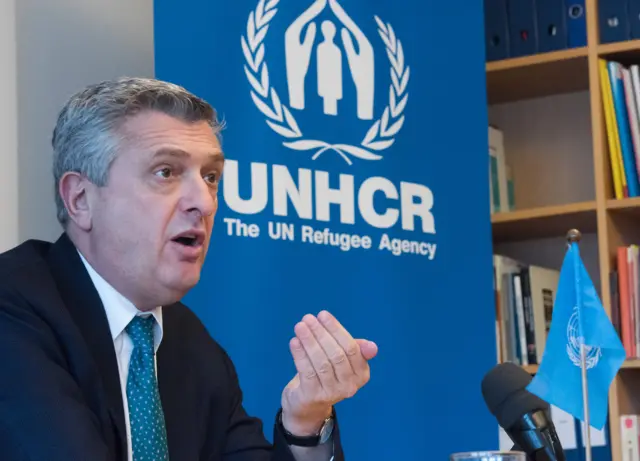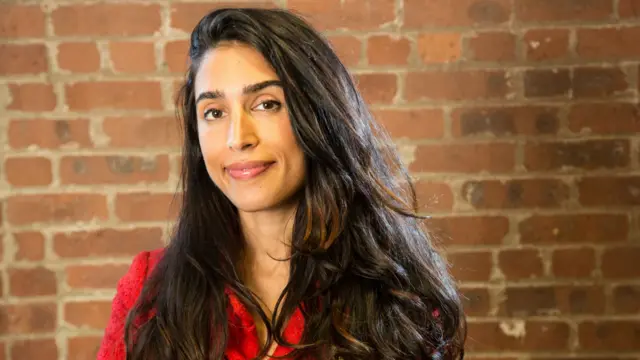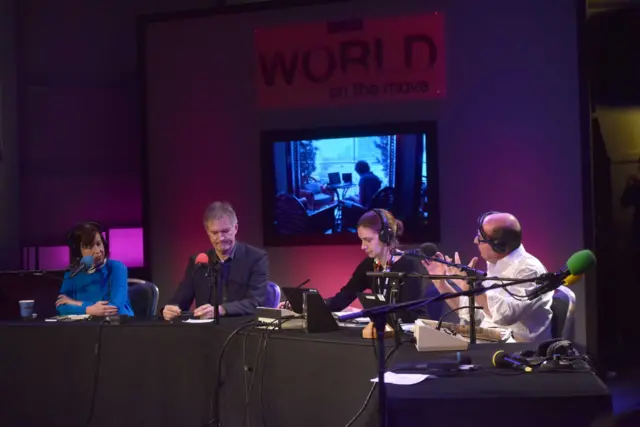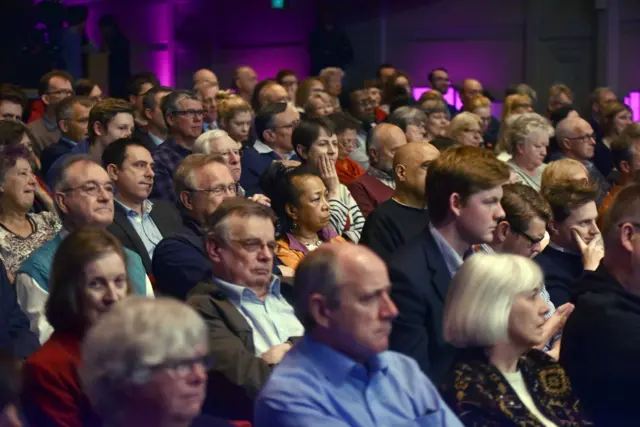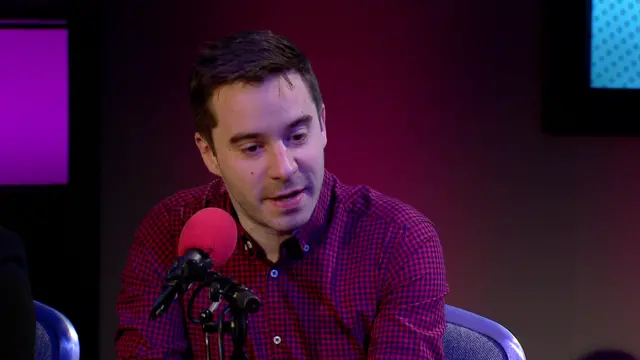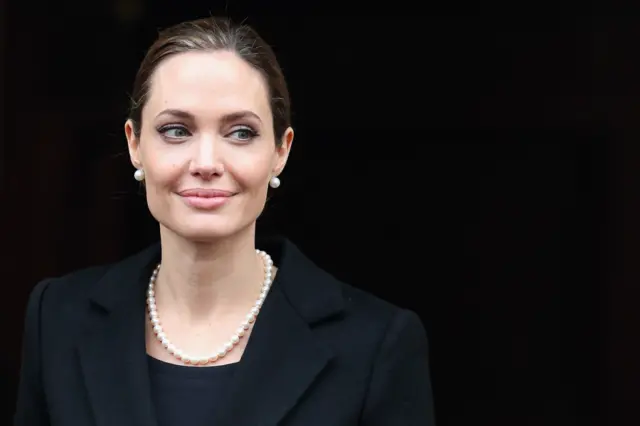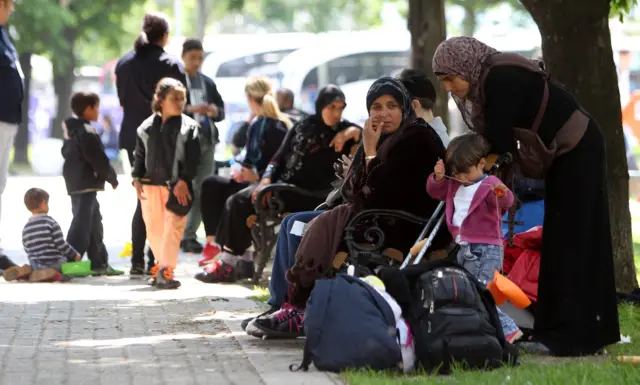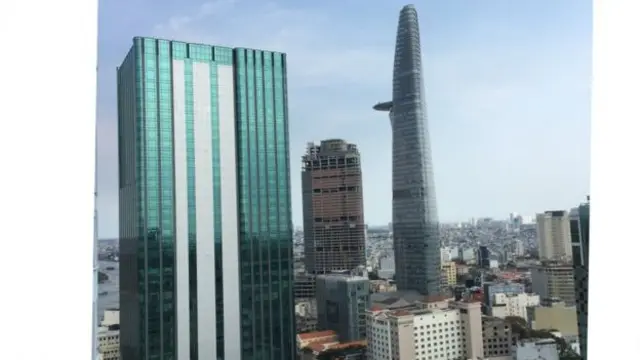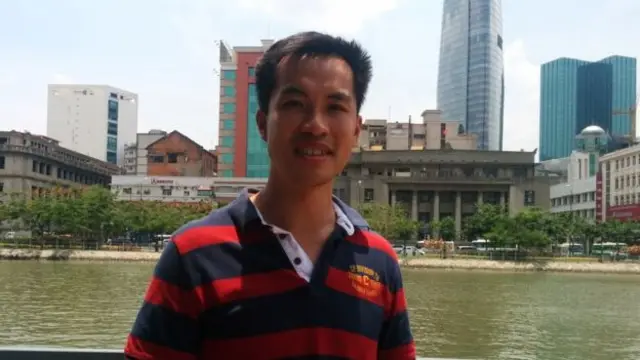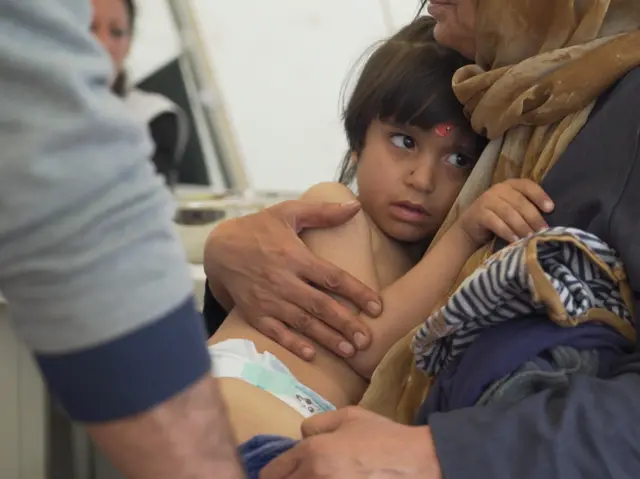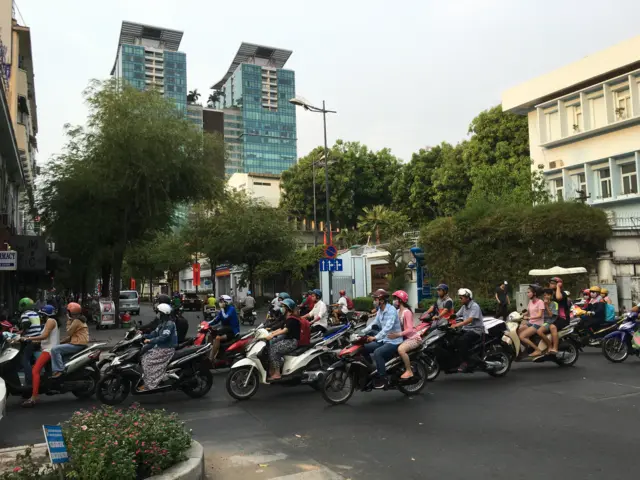The map Syrian refugees use to get to Europe.published at 09:53 (08:53 GMT)
Professor Marie Gillespie explains how Syrian refugees use a smartphone-friendly map
A map, or chart, used by refugees from Syria and Iraq to get into and through Europe has been found by researchers from the Open University.
Refugees interviewed in Paris told the researchers - who were looking into the use of smartphones on the migrant route - that the map was widely shared using apps such as Whatsapp and Facebook.
The map was revealed as part of an Open University report: Mapping Refugees Media Journeys, external.
The researchers say there is a "huge gap" in the provision of relevant, reliable and timely news and information for refugees. Instead, they are forced to rely on unreliable sources on social media and exposed to greater risks.
The report urges the European Commission to fund a partnership between EU states, news organisations, technology companies and NGOs to help come up with a way of providing up-to-date news.
